Crisis Counseling and Support
AVP offers 24/7 support by phone or text at 212-714-1141. You can also fill out our report violence form and a trained counselor will contact you within 48 hours.
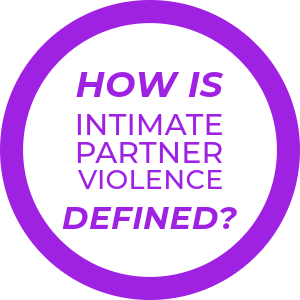
Intimate Partner Violence is the use of power and coercion to control a partner. It is also referred to as domestic violence in some circles, or partner or relationship violence.
IPV can exist in relationships where those involved live together, or live apart and whether they are married or unmarried or in a monogamous or polyamorous relationship.
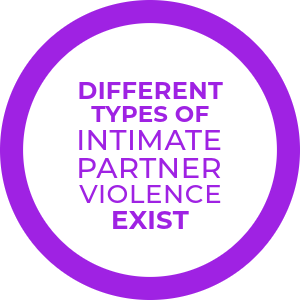
Intimate Partner Violence can take one or more forms in a relationship:
Often, more than one type of IPV can be present at the same time.
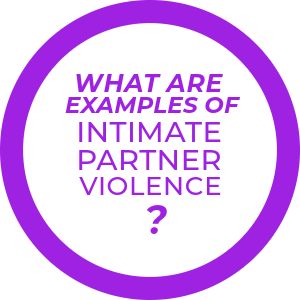
Intimate Partner Violence can also look like:
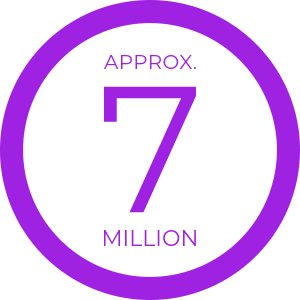
Approximately 7 million lesbian, gay, bisexual and transgender people have experienced intimate partner violence.
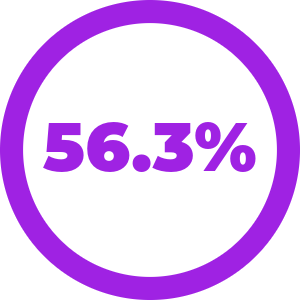
56.3% of lesbian women experienced intimate partner violence in their lifetime.
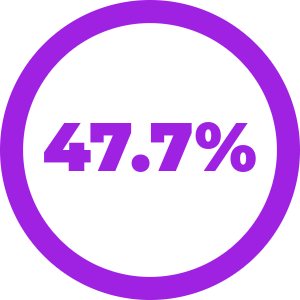
69.3% of bisexual women experienced intimate partner violence in their lifetime.
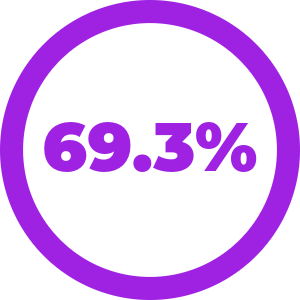
69.3% of bisexual women experienced intimate partner violence in their lifetime.
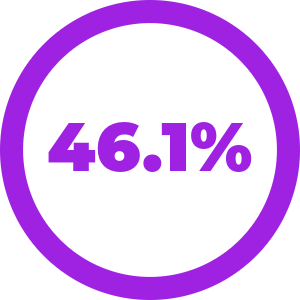
46.1% of bisexual men experienced intimate partner violence in their lifetime.

4.5 million lesbian and bisexual women reported experiences of intimate partner violence in the 2016/2017 National Intimate Partner and Sexual Violence Survey.

2.5 million gay and bisexual men reported experiences of intimate partner violence in the 2016/2017 National Intimate Partner and Sexual Violence Survey.
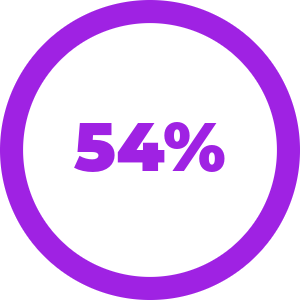
54% of transgender people reported some form of intimate partner violence in 2015.
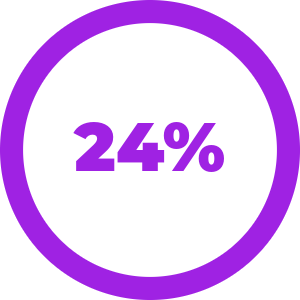
24% percent of transgender people reported severe physical violence from an intimate partner.
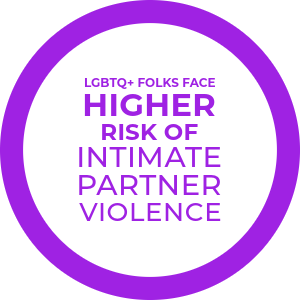
Many LGBTQ+ populations are at an elevated risk for intimate partner violence. Bisexual women, transgender people, LGBTQ+ people of color, disabled LGBTQ+ folks and undocumented LGBTQ+ folks may be at higher risk for intimate partner violence.
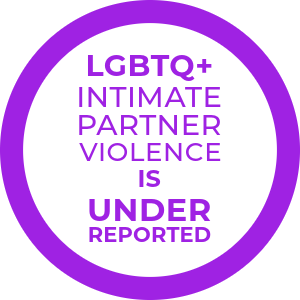
LGBTQ+ intimate partner violence is vastly underreported, unacknowledged and often misreported as something other than IPV. And, often times LGBTQ+ survivors face additional stigma, harm or violence when attempting to seek services for survivors of IPV.
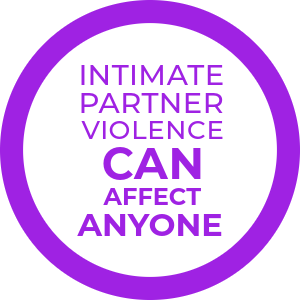
IPV can affect anyone regardless of their gender identity or sexual orientation. Cis men, cis women, Trans people, nonbinary people all can be survivors or harm doers. Barriers and stigma often prevent LGBTQ+ people from seeking the help that they need, and many support structures such as domestic violence programs and shelter systems limit or prohibit some sections of our community.
LGBTQ+ survivors with disabilities are at least two times more likely to be isolated by their abusive partner, three times more likely to be stalked and four times more likely to experience financial violence.
LGBTQ+ sex workers experience increased risk due to the criminalization of their work, making them more likely to experience sexual or physical violence from a partner, clients, employees or coworkers, but face barriers to reporting and getting support.
LGBTQ+ immigrants, particularly those who are undocumented, may also experience intimate partner violence in unique ways. This can look like threats to report a partner’s immigration status to ICE or other officials, or the withholding/controlling access to identity or travel documentation.
For folks living with or affected by HIV, intimate partner violence can look like threats of exposure or outing of a partner’s HIV status, preventing them from receiving care or medication, or using anti-HIV stigma to harm them.
For transgender, gender non-conforming and nonbinary survivors of intimate partner violence, experiences may include a partner refusing to use a TGNC survivor’s pronouns or chosen name, denying access to hormones, medical care, gender-affirming clothing or supplies, or targeting or harrassing a TGNC survivor about their body, gender identity or gender expression.
False. IPV is more likely to affect LGBTQ+ relationships, especially those of us who are transgender, people of color, disabled, or bisexual. Anyone can experience IPV no matter their sexual orientation or gender identity, or the sexual orientation or gender identity of their partner.
False. LGBTQ+ relationships can look different, and have different power, gender and sexuality dynamics than other relationships. Anyone can be a perpetrator of intimate partner violence, even if they don’t look like traditional images of someone who does harm.
False. Intimate Partner Violence can be physical, financial, emotional, or sexual. Sometimes IPV within a relationship includes many tactics of power and control.
Sexual violence is non-consensual sexual activity of any kind, forced by a partner.
Emotional violence is using verbal or psychological abuse to control, demean or coerce a partner.
Financial violence is the non-consensual use of or control over financial resources like bank accounts, taking out debt in a partner’s name, or forcing/coercing a partner to engage in financial transactions without their consent.
True. Men can be survivors of intimate partner violence of any kind. Often, stigma makes it harder for male-identified folks to seek support or assistance when they experience intimate partner violence. Data shows that Gay, Bisexual and Queer men may be at a heightened risk for IPV than non GBQ men, and are more at risk for fatal instances of IPV.
True. Historical treatment of LGBTQ+ survivors as well as the potential threats of revictimization (experiencing more harm while trying to get help) can cause LGBTQ+ survivors to be less likely to report their experiences to police or seek support from mainstream services or shelters.
AVP can help survivors safety plan should they need to contact or connect with law enforcement or other programs for survivors.

AVP offers 24/7 support by phone or text at 212-714-1141. You can also fill out our report violence form and a trained counselor will contact you within 48 hours.

Our Advocacy Unit (AU) team will work with survivors to get necessary benefits and access to important programs and resources.

AVP offers support year-round support groups for survivors of violence, including groups designed for TGNC survivors, for survivors of IPV and for those navigating relationship issues. Contact our hotline for updated information on support groups.
Our legal team provides direct representation and advocacy for LGBTQ+ survivors of violence for a variety of cases based on client need program availability. Connect with our hotline to get more information and referral.

Our legal team provides free consultation and representation or direct referral to LGBTQ+ survivors of violence seeking orders of protection, custody and visitation, divorce and dissolution and/or child and spousal support.

Our legal team can support LGBTQ+ survivors of violence with legal name change documentation and correction of identity documents such as NYS ID/DL, Social Security cards, Passport, Birth Certificate, etc.

Our legal team provides support for LGBTQ+ survivors facing eviction or experiencing harassment from a neighbor or landlord.
Trans communities are facing disinformation, discrimination, and hate.
AVP’s Legal Department provides free, life-saving legal support to LGBTQ+ survivors, helping them secure safety and immigration protections.
Donate today to keep these critical services free for those of us who need them most.
Notifications